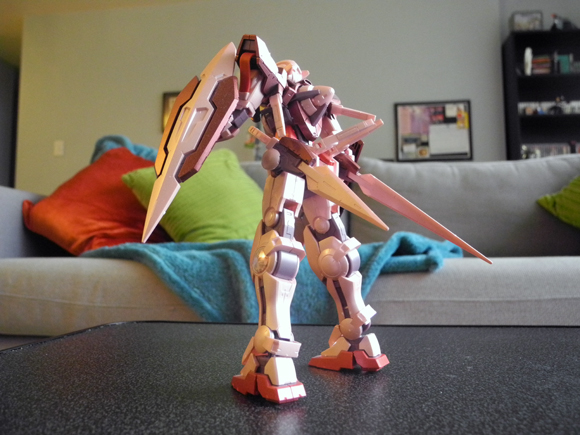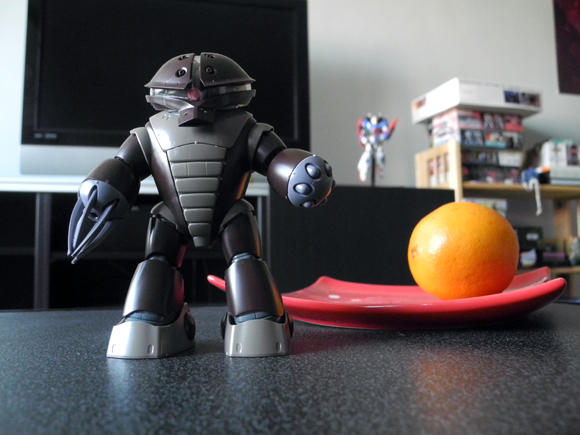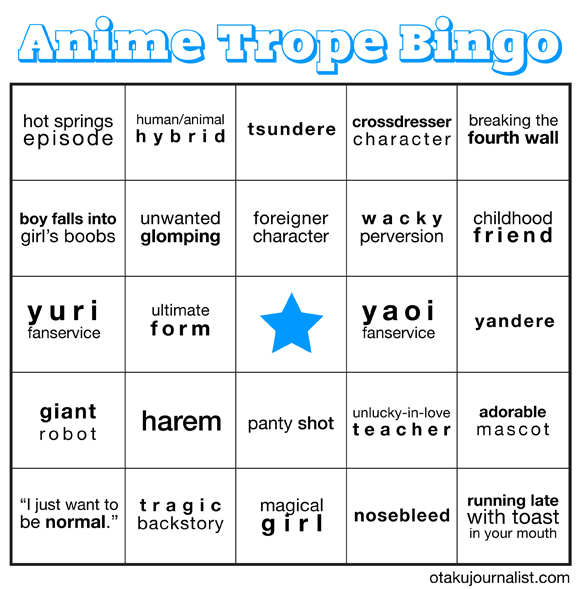Like Gunpla? Click the image below to visit my new blog, Gunpla 101.
Meet Chibi Gundam Unicorn. I put him here next to my Nenderoids for size comparison. It took me less than an hour to assemble this tiny transplant from Japantown—less than half the time it took me to fly him back from San Francisco.
I’m mentioning this because he’s very similar to the first Gundam model I ever built, also a chibi. But that one took me an entire afternoon. Three years later, I think I’m finally getting the hang of this Gundam building thing.
I bring this up because, after all this time, my Sept. 7, 2011 blog post, Gundam Modeling 101, is still the most popular post on Otaku Journalist. Is Gundam modeling getting more popular?
If it is, it isn’t getting more accessible. The instructions are still always in Japanese. I still make a lot of mistakes. In the years I’ve been building Gundams, I’ve learned there’s a damned steep learning curve.
The most important lesson I’ve learned though, is not to be such a perfectionist. I’m not trying to compete with the eight-year-old girl who won the Gundam Builder’s World Cup. My goal is just to get off the computer for a while and remember what it’s like to create something with my hands.
Here are some of the Gundams I’ve build recently and what I learned in the process:
“SWAG.”
This is Gundam Exia, a 1/100 High Grade model. High Grade means he’s the second easiest type to put together after chibis; the fraction means he’s 1/100 the size of a figurative “life size” Gundam.
I hadn’t seen Gundam 00 when I bought him; I just liked the pearl pink color. I was surprised to find out he is piloted by a guy! But I don’t put him in these wide-stanced, imposing poses because of gender. It’s more like, he’ll fall over if I put his legs too close together.
Now you see why. Just look at that rear view. Gundam Exia has no less than SIX swords on his person. I think this is why I have such a tough time keeping him balanced. Still, every time I move him to take photos, a part falls off.
Gundam Exia taught me:
- There’s no shame in using a little superglue. Sure, Gundams are supposed to snap together, but my High Grades aren’t always the finest quality. It may make the pros cringe, but gluing a few pieces on keeps me from having to reassemble him completely every time I want to pick him up.
- A larger scale means it’s harder, not easier, to build. I had only built 1/144 models before Exia, and I thought this one’s larger size would mean bigger, simpler parts. Wrong! It just has a lot more detail. This is why it’s so hard to find High Grade models that are 1/100 scale in the first place, and why I can’t even find a link to this particular model.
This is Acguy, here placed next to a Clementine for size comparison. An HG model, he came in a three-pack of amphibious suits along with Char’s Z’gok and a Gogg. I bought it at Otakon 2012 exclusively for the Acguy (come on, does ANYONE like the Gogg?) and just got around to building it.
John ended up building the other two because I sure wasn’t going to. They’re not nearly as cute! The Z’gok is okay, but I hate the Gogg. Sometimes to mess with me, John puts it on my nightstand while I’m asleep.
Acguy taught me:
- Three-packs are not exactly a bargain. I bought all three of these guys for the same price as Gundam Exia. Even though both kits are High Grades, the Exia is significantly higher quality and had a lot more parts. You can tell just looking at him that Acguy’s torso is just two or three parts snapped together.
- If you break it, you’re SOL. I’m not posing Acguy’s claw closed because I want to. It’s more like, I was a little rough with one of the talons and it bent. Now it doesn’t open anymore, so I can’t pose him with an open claw. Gundam kits don’t come with extra parts, so there’s nothing I can do now except buy a new Acguy, and it’s not worth doing that.
In sum, you’re not going to get any tips from me about smoothing out imperfections with sandpaper or using fancy, overpriced tools to assemble your Gundam. My philsophy to Gundam building is a leisurely one—if it’s not fun and takes too long, it’s not worth it for me.
Have you built any new Gundam models lately? I encourage you to brag!
Like Gunpla? Click the image below to visit my new blog, Gunpla 101.








![[HorribleSubs]_Cuticle_Detective_Inaba_-_01_[1080p].mkv_001346.770_1](http://otakujournalist.com/wp-content/uploads/2013/01/HorribleSubs_Cuticle_Detective_Inaba_-_01_1080p.mkv_001346.770_1.png)


